Vicki L. Weavil's Blog, page 9
June 29, 2016
Visuals!!
As a former costume designer and amateur artist (and art history buff) I admit that I’m a very visual person. So of course I was attracted to Pinterest!
I’ve created boards for all of my books. You can see my visual inspirations for all of them here:
https://www.pinterest.com/vickilweavil/
So, if you’re curious how I imagine my characters in CROWN OF ICE, SCEPTER OF FIRE, ORB OF LIGHT, FACSIMILE, THE DIAMOND THIMBLE, and the OTHERS trilogy, check it out!
June 22, 2016
WAIT FOR IT…
We live in a “give it to me this second” culture, where convenience is often valued more highly than quality. (Why else would people stream TV shows and films on their tiny phone screens?)
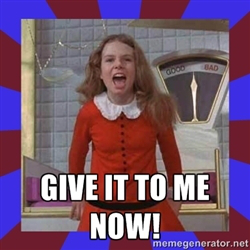 There’s nothing wrong with cultural changes, per se, but I have noticed a major shift in fiction in recent years. No longer are authors allowed to build from a quiet beginning to a dramatic finish—now it needs to be “all action, all the time.” Or at least, lots of “DRAMA!” right from the get-go.
There’s nothing wrong with cultural changes, per se, but I have noticed a major shift in fiction in recent years. No longer are authors allowed to build from a quiet beginning to a dramatic finish—now it needs to be “all action, all the time.” Or at least, lots of “DRAMA!” right from the get-go.
So many times these days, when I read reviews I see something like: “It was slow in the beginning, but I did really love it by the end.” That immediately makes me WANT to read the book, because I like slow in the beginning. Not boring or poorly written, of course, but I don’t mind if an author takes their time to build and deepen characters, or immerse me in the setting, or even tempt me with slightly cryptic hints about what’s to come. I don’t necessarily want to open a book and be dumped into some “rock ‘em, sock ‘em” fight between characters I’ve never encountered before, or follow some random people escaping an explosion. I don’t know these characters yet, so why the heck would I care what happens to them?
I often feel this way about films or TV shows too. Give me context and make me care before you blow some character to bits. Otherwise, it’s just visual candy—all spectacle and no substance. Two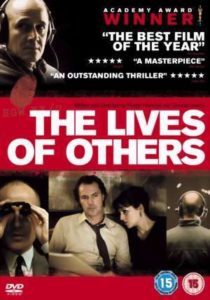 of my favorite films, THE LIVES OF OTHERS and BABETTE’S FEAST, move very slowly in the beginning, but by the end of the movie they leave you both emotionally shattered and uplifted. Without the conscious, careful, layering of characters, setting, and meaning, the conclusions of these films would never possess the power to actually transform the way the viewer looks at things, or thinks about the world.
of my favorite films, THE LIVES OF OTHERS and BABETTE’S FEAST, move very slowly in the beginning, but by the end of the movie they leave you both emotionally shattered and uplifted. Without the conscious, careful, layering of characters, setting, and meaning, the conclusions of these films would never possess the power to actually transform the way the viewer looks at things, or thinks about the world.
Consider music. A song that builds from quiet to a shattering crescendo of sound and emotion at the end is much more affecting (I think) than something that is simply loud all the way through. Great composers and performers know that varying the intensity and building toward an emotional climax is essential to creating a piece that stands the test of time.
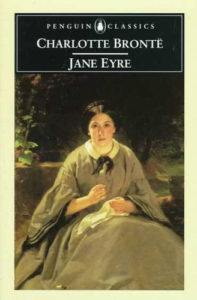 So I’d like to encourage readers to step back and give a little time before they decide how they feel about a book. Of course, if the book is completely dull or poorly written, that’s another matter, but if the book has good qualities, give it a chance. Think of missing out on JANE EYRE or LORD OF THE RINGS or REBECCA just because those books don’t actually start with a “bang.” Allow the book to seduce you, not just overwhelm you with action, action, and more action. Give it time.
So I’d like to encourage readers to step back and give a little time before they decide how they feel about a book. Of course, if the book is completely dull or poorly written, that’s another matter, but if the book has good qualities, give it a chance. Think of missing out on JANE EYRE or LORD OF THE RINGS or REBECCA just because those books don’t actually start with a “bang.” Allow the book to seduce you, not just overwhelm you with action, action, and more action. Give it time.
Wait for it… It might surprise you.
June 17, 2016
DAYBREAK RISING by Kiran Oliver — Cover Reveal!
On September 21, 2016, the F/F fantasy DAYBREAK RISING will be arriving to an e-readers near you from Torquere Press! Today, we get a first look at the amazing cover, designed by the amazing artist Kris Norris over at Torquere.
Here’s a bit about DAYBREAK RISING:
22-year-old Celosia Brennan spent sixteen years being raised as the heroine her nation needed. A dual-touched Elementalist with both the power to conjure fire and see glimpses of her future, Celosia was the best hope at overthrowing the oppressive Council in a mission called Daybreak, an attempt to secure justice for the massacre of her people and so many others. There’s just one problem: she couldn’t. Celosia broke down after realizing the enormity of her task, and is struggling to make things right while the blood of her fellows stains her hands.
Now branded a failure, Celosia desperately volunteers for the next mission: taking down the corrupt Council with a team of her fellow elementally-gifted mages. Leading the Ember Operative gives Celosia her last hope at redemption. They seek to overthrow the Council once and for all, this time bringing the fight to Valeria, the largest city under the Council’s iron grip. But Celosia’s new teammates don’t trust her—all except for a powerful ice Elementalist named Ianthe who believes in second chances.
With Council spies, uncontrolled magic, and the distraction of unexpected love, Celosia will have to win the trust of her teammates and push her abilities to the breaking point to complete the Ember Operative. Except if she falters this time, there won’t be any Elementalists left to stop the Council from taking over not only her country, but their entire world.
So here it is…The moment we’ve been waiting for…
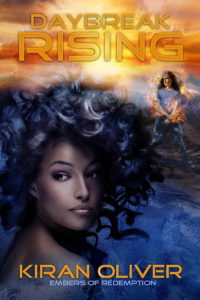
You can add DAYBREAK RISING to your GoodReads TBR shelf today, and pre-orders should be live from Torquere soon! Be sure to sign up to Torquere Press’s newsletter to be the first to know when DAYBREAK RISING is available for pre-order.
About the author:
Kiran Oliver is a Southern New Hampshire University graduate having majored in Communication with a PR focus. He currently attends Free Code Camp in the hope of earning a certificate in Full Stack Web Development while working as a freelance technology journalist. When he’s not writing for work, he’s creating novels such as DAYBREAK RISING for fun. When not daydreaming about lesbian pirates, queer lady paladins, or dragons, Kiran can be found at the gym or playing MMOs. He resides in New Zealand with his wife Elizabeth, their cat, Ember, and soon to be a puppy named Zephyr. Find Kiran on social media: Twitter – @coliver_writes GoodReads – https://www.goodreads.com/author/show/14011102.C_K_Oliver Facebook – https://www.facebook.com/authorCKOliver
June 7, 2016
What Writers – and other Artists – Can learn from Scientists
 I am often amazed that I am a speculative fiction writer, considering I grew up surrounded by scientists and other pragmatic thinkers.
I am often amazed that I am a speculative fiction writer, considering I grew up surrounded by scientists and other pragmatic thinkers.
My late father was a brilliant virologist, my older brother (who conducted experiments in our kitchen when I was young) is an epidemiologist, and my younger brother works in horticulture. My mother, while not a professional scientist, definitely possesses their logical, skeptical, mindset.
I am the odd one, with my crazy dreams and even wilder (in their mind) books. “How DO you come up with those stories?” my mother asks. Well, I am not entirely sure, although a lifetime of reading speculative fiction might have left its mark. (Not to say my family does not read—they are actually great readers. But they don’t read speculative fiction of any kind. Except mine, of course!)
That being said, I do feel that there are two things writers, and other artists, can learn from science: 1.) the need to experiment, and 2.) the understanding that nothing is a “failure” if it advances one’s understanding of a particular theory, concept, technique, or craft.
Scientists know it may take years of experiments—many unsuccessful—to reach a breakthrough. Their successes are bought with time, and failure after failure.
But a true scientist does not give up due to failed experiments. They may rework their ideas, 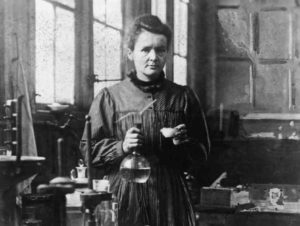 conduct different experiments, or choose another path toward their goal, but they do not abandon their work simply because one (or two, or many) of their attempts fail. Take, for example, Marie Skłodowska Curie, who worked with her husband, Pierre, on theories related to radioactivity. In 1902—based on research begun over thirteen years before—they took a ton of pitchblende and reduced it to one-tenth of a gram of radium chloride, but pure radium metal was not isolated from this until eight years later, in 1910. Yes, it made them household names, but years and years of research, plus eight years of painstaking labor—and many failures—were required to achieve this “overnight” fame!
conduct different experiments, or choose another path toward their goal, but they do not abandon their work simply because one (or two, or many) of their attempts fail. Take, for example, Marie Skłodowska Curie, who worked with her husband, Pierre, on theories related to radioactivity. In 1902—based on research begun over thirteen years before—they took a ton of pitchblende and reduced it to one-tenth of a gram of radium chloride, but pure radium metal was not isolated from this until eight years later, in 1910. Yes, it made them household names, but years and years of research, plus eight years of painstaking labor—and many failures—were required to achieve this “overnight” fame!
So what does this say to writers and other artists? Well, for one thing, we can learn to be more fearless in experimenting with different literary forms, genres, age classifications, concepts, and themes. So what if we discover that neither middle grade literature nor adult Romance are truly part of our skill set? One (or two, or three) not quite-so-successful manuscript(s) never destroyed anyone. In truth, I believe writers are not always as insightful about our own talents as we would like to think. We say we cannot write a certain thing, but how do we know unless we experiment? I know this is true about acting. Since I was a theatre major, I studied acting, although it was never the focus of my career. But one thing I did learn—my most successful forays into acting were in roles I would never have selected as being “right” for me. In the same way, we may not know what we write best until we experiment, and write it!
Science also tells us nothing is a failure if you can learn something from the process. We may all have a book (or books) that do not do well in the marketplace. Science says—do not disavow those books, or feel ashamed of your talent. Instead, study those books, and attempt to understand why they were unsuccessful. Was it the book, or the market at the time? Are there things we can change in future manuscripts, or in our marketing, or in other areas, to avoid such problems in the future? Alternately, should we attempt to experiment with another genre, style, or what-have-you to see if that changes the equation?
So I challenge authors—including myself—to experiment more and worry about “failure” less. Try something new and different, and see what happens. Don’t be so discouraged if some books don’t achieve the goals set for them. Learn from that process and try again. And again. And again. Take another path, ask “what if?” and follow where those wild thoughts lead us.
Eventually, we may illuminate the world with our very own “overnight” success!
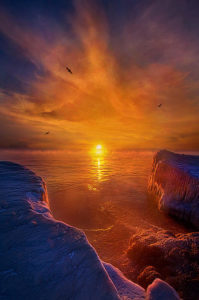
June 4, 2016
A New Start
My old website/blog was irrevocably damaged by a hack. So I am starting anew!



